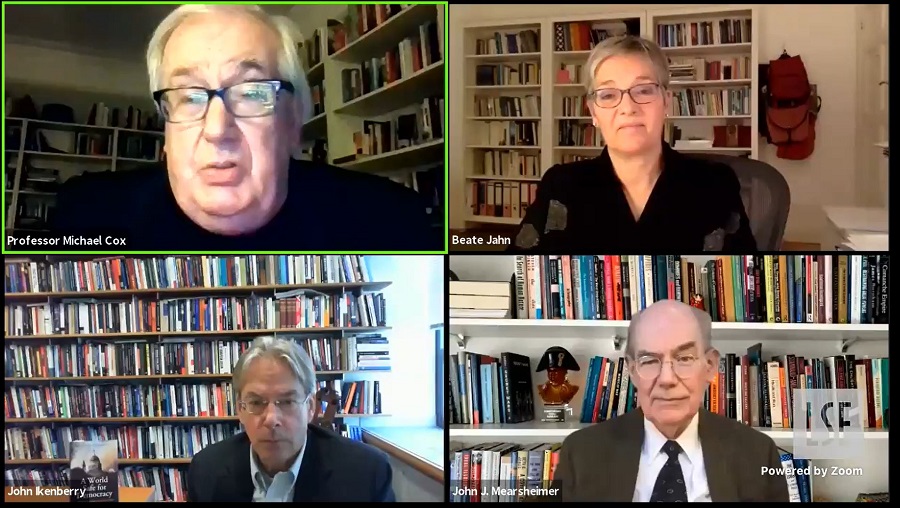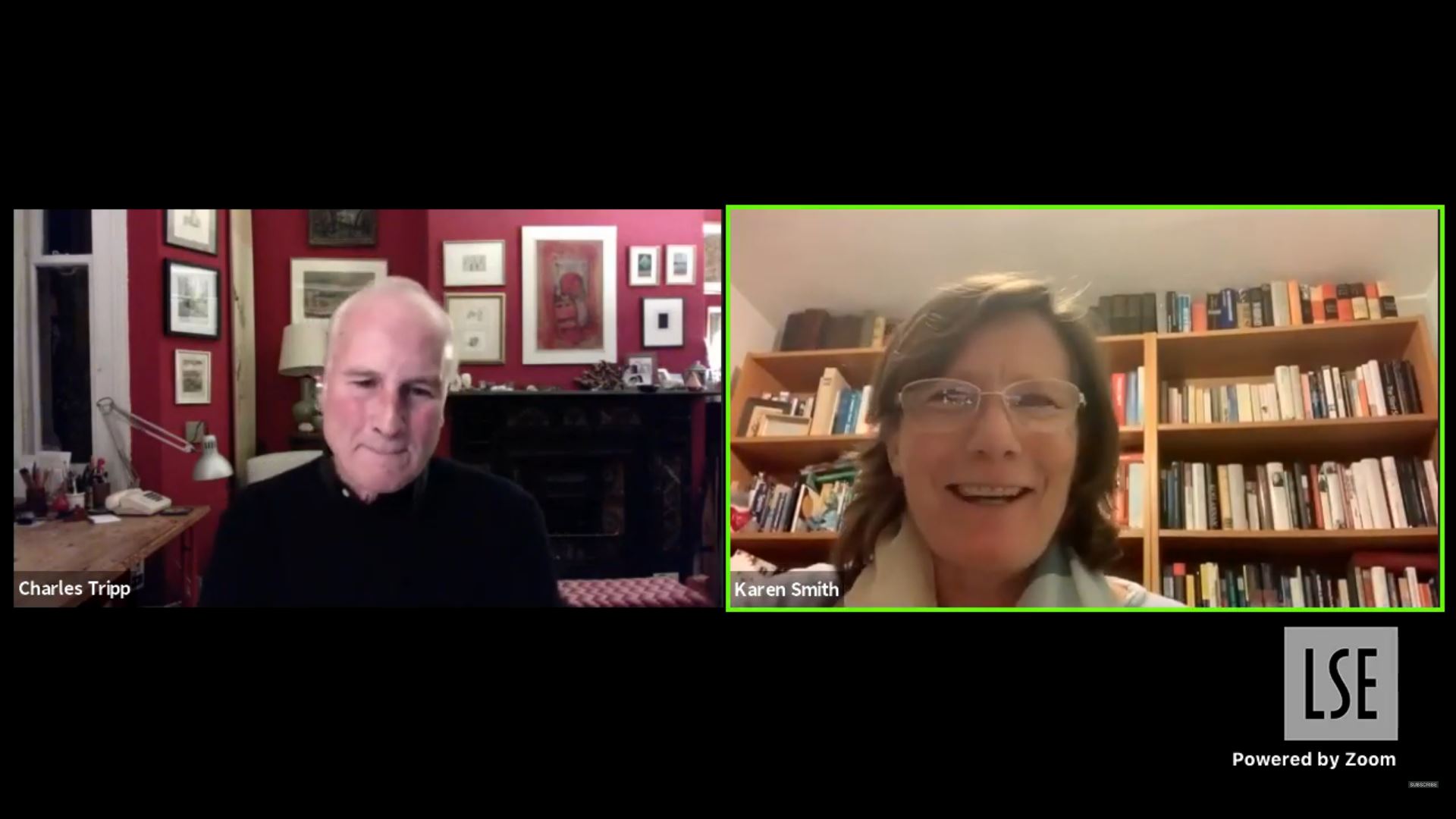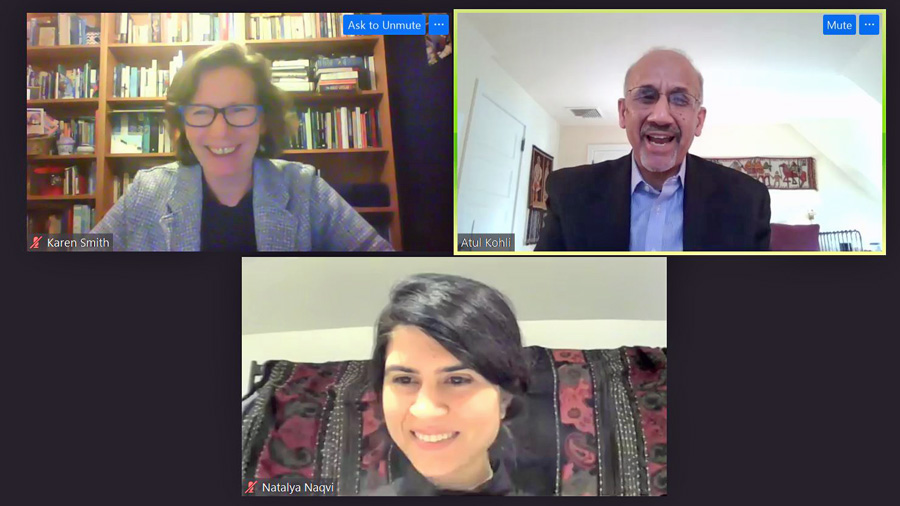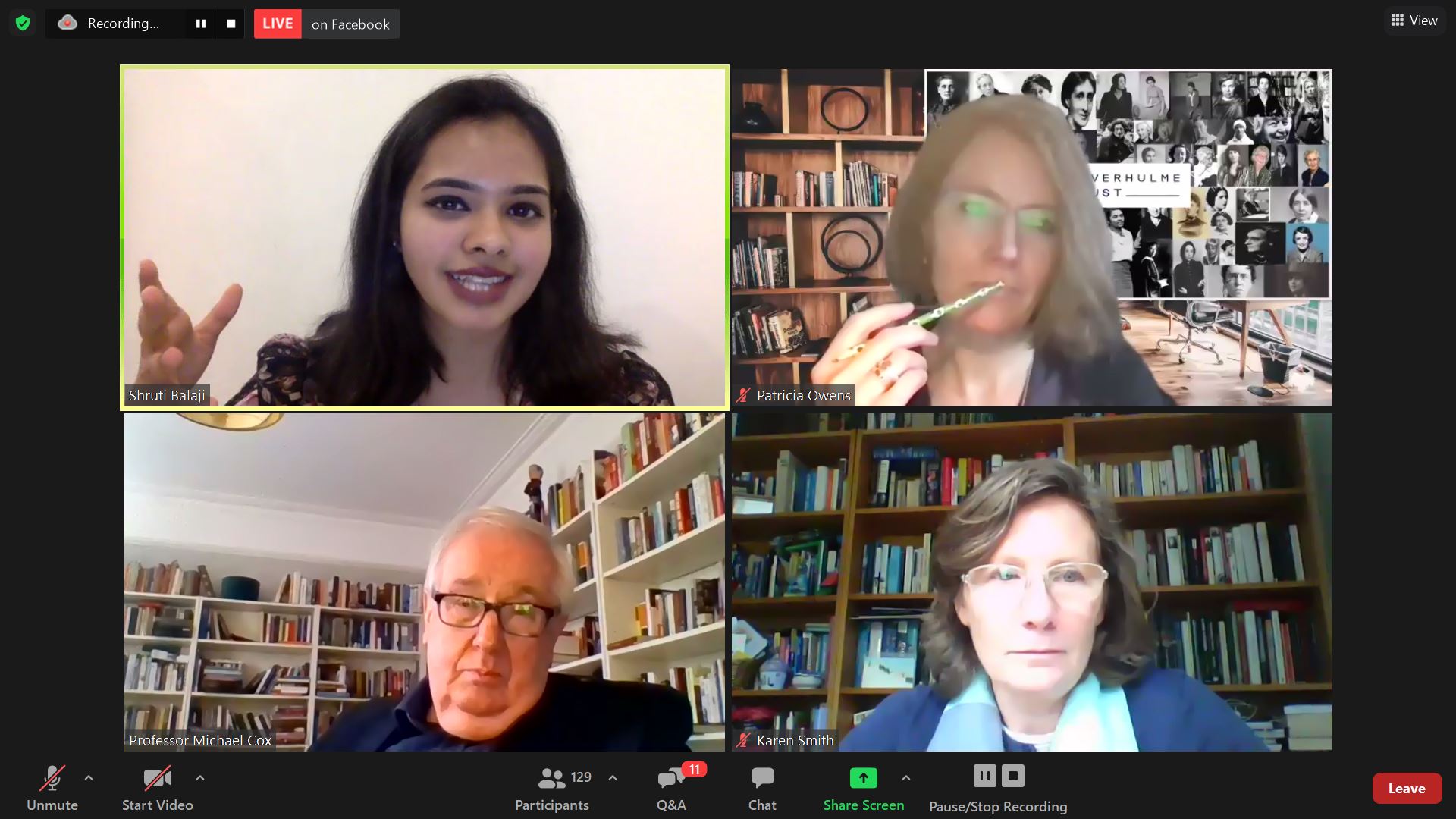On Tuesday 16th February 2021, Professors G John Ikenberry, Beate Jahn and John J Mearsheimer debated the crisis of the liberal order: is the cause of the crisis liberalism itself, or does it have as much to do with Trump and the rise of populism as anything else?
They explored the clash between liberalism and realism in an online event, hosted by LSE Department of International Relations. The Chair, Professor Michael Cox, reflects on the event below.

“Documenting the demise of the liberal international order has become a growth industry in the foreign policy sector”. Stewart Patrick, ‘Hold Those Obituaries for the Liberal World Order’, Council on Foreign Relations, October 5, 2010.
No sooner had Francis Fukuyama proclaimed the victory of liberalism over its collectivist rivals in 1989 than its various critics from both the right and the left began writing its obituaries. The rush to declare that the liberal project was either dead, close to death or might not last the night was initially given a shot in the arm following the publication of Dani Rodrik’s outstanding book of 1997 where he asked whether or not globalisation had gone too far? It then continued with the onset of the Iraq war identified by its many opponents as being a liberal war fought for all the wrong reasons. The attacks then went viral following the 2008 financial crisis – another result it was argued of liberal excesses which had not only damaged the credibility of that ‘liberal leviathan’ known as the United States but also undermined the case for something liberals had been celebrating for over a century: free market economics.
In a famous article published in 1999 by John Ikenberry and Dan Deudney, the two Americans made a strong case for liberalism identifying its deeper sources and suggesting strongly that it was the only game in town. But fewer and fewer writers it seemed agreed with them; and when a few years later populism came to town delivering us Orban in Hungary, Brexit in the UK and Trump in the US, the game seemed to be up. Indeed, even before Trump entered the White House, Stephen M. Walt was suggesting liberalism had already collapsed [see his ‘The Collapse of the Liberal Order’, Foreign Policy, June 26, 2016]. A year later and a writer from Brookings was claiming it was near its end [see Robert Kagan, ‘The twilight of the liberal world order’, Brookings, January 24, 2017]. Another year on and John Mearsheimer was insisting that the whole idea had been delusional [see his Great Delusion: Liberal Dreams and International Relations, New Haven, Yale University Press, 2018]. In 2019 a leading Italian Think Tank ISPI then suggested that it was either declining or about to die [see A. Colombo and P. Magri eds; The End of a World: The Decline of the Liberal Order, Milano, Ledizioni Ledi Publishing, 2019]. Then finally, in 2020, Patrick Porter delivered the coup de grace, insisting that liberalism had promised a great deal but failed to deliver on its promise [see his The False Promise of the Liberal Order: Nostalgia, Delusion and the Rise of Trump Cambridge, Polity Press, 2020].
 Game set and match. Or was it? Not according to John Ikenberry who in his most recent book [see A World Safe for Democracy, New Haven, Yale University Press, 2020] and at a well attended Public lecture hosted by the IR department at the LSE set out the liberal stand. He accepted that the liberal order was in trouble and that its reform was long overdue. However, its critics faced a problem possibly two he felt: they failed to recognise its achievements or suggest a viable alternative. Moreover, with Trump gone and Biden and the Democrats back in charge, there was now a chance to restore what had been had been squandered under Trump.
Game set and match. Or was it? Not according to John Ikenberry who in his most recent book [see A World Safe for Democracy, New Haven, Yale University Press, 2020] and at a well attended Public lecture hosted by the IR department at the LSE set out the liberal stand. He accepted that the liberal order was in trouble and that its reform was long overdue. However, its critics faced a problem possibly two he felt: they failed to recognise its achievements or suggest a viable alternative. Moreover, with Trump gone and Biden and the Democrats back in charge, there was now a chance to restore what had been had been squandered under Trump.
 Responding to Ikenberry, John Mearsheimer could not have disagreed more. He hoped that Ikenberry was right and that he was wrong. But somehow he doubted it! Liberalism he went on had manifestly failed to deliver the order it promised back in 1989 – in part because it tried to impose itself in parts of the world like the Middle East where it was manifestly unsuited, in part because most people around the world remained attached to the nation state and increasingly saw globalisation as a problem rather than a solution, and in part because it had assumed that states like China could be drawn into the liberal order. Indeed, according Mearsheimer one of the greatest mistakes made by the United States was in thinking that the more it traded with and invested in China, the more it would become liberal. All that was achieved however was a strengthening of China, which according to Mearsheimer now constitutes the US’s greatest challenge going forward into the 21st century.
Responding to Ikenberry, John Mearsheimer could not have disagreed more. He hoped that Ikenberry was right and that he was wrong. But somehow he doubted it! Liberalism he went on had manifestly failed to deliver the order it promised back in 1989 – in part because it tried to impose itself in parts of the world like the Middle East where it was manifestly unsuited, in part because most people around the world remained attached to the nation state and increasingly saw globalisation as a problem rather than a solution, and in part because it had assumed that states like China could be drawn into the liberal order. Indeed, according Mearsheimer one of the greatest mistakes made by the United States was in thinking that the more it traded with and invested in China, the more it would become liberal. All that was achieved however was a strengthening of China, which according to Mearsheimer now constitutes the US’s greatest challenge going forward into the 21st century.
 Beate Jahn moved the discussion in a different direction and suggested (as she had done in an earlier article published in International Affairs in 2018 [see her ‘Liberal internationalism: historical trajectory and current prospects’]) that while she agreed with Mearsheimer that liberal internationalism had been in crisis for a while, perhaps one of the reasons for this should be sought in the rise of populism which by challenging liberalism in the domestic sphere also aimed to unravel it in the international sphere too. But the problem she argued went deeper and flowed from liberalism itself and the successful extension of liberalism into the international sphere thus undermining the divide between the domestic and international politics which a liberal international order required in order to persist.
Beate Jahn moved the discussion in a different direction and suggested (as she had done in an earlier article published in International Affairs in 2018 [see her ‘Liberal internationalism: historical trajectory and current prospects’]) that while she agreed with Mearsheimer that liberal internationalism had been in crisis for a while, perhaps one of the reasons for this should be sought in the rise of populism which by challenging liberalism in the domestic sphere also aimed to unravel it in the international sphere too. But the problem she argued went deeper and flowed from liberalism itself and the successful extension of liberalism into the international sphere thus undermining the divide between the domestic and international politics which a liberal international order required in order to persist.
Following the three presentations the discussion ranged far and wide eliciting an enormous of number of questions from some of the 1500 people who had registered for the debate. Still, one issue was left hanging in the air: namely what was to be done and where was the world supposed to go from here? We can all agree – and indeed all three speakers did agree – that the liberal order was in trouble (though Ikenberry remained optimistic that there was a way forward) But could it be reformed? (Mearsheimer thought not). And what should be avoided to make sure that things did not get worse? (an issue developed by Jahn). Lots of questions and lots of food for thought on what has probably become the most important international question of our time.




